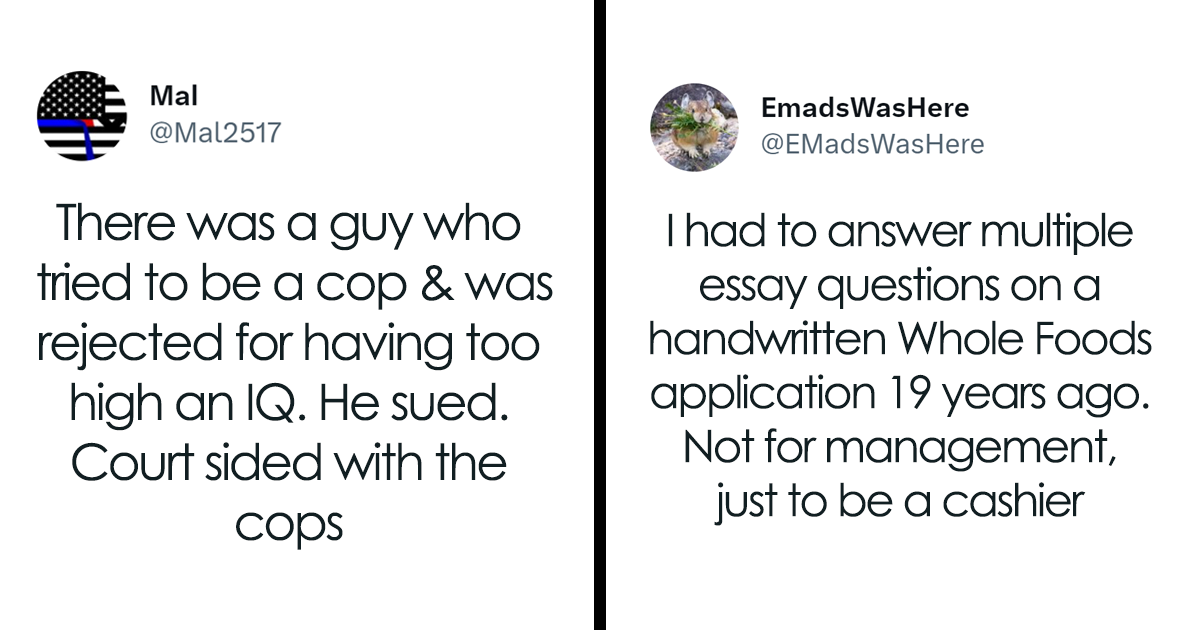35 Examples Of Hilariously Unrealistic Expectations When Applying For A Job

When it comes to finding a job, every position requires the candidate to fit into a certain mold, which usually differs with each vacancy. Every company presents a list of requirements that allow them to sift through the candidates more easily and make the best decision when it comes to finding a teammate. Such expectations can entail required skills, amount of experience, knowledge of certain tools or programs, and similar assets.
Unsurprisingly, higher-ranking positions typically demand criteria that are more difficult to meet. However, some companies, as you can see in these pictures, seem to be asking for too much, considering what they offer in exchange.
A person in one of these examples mentioned having to take a personality test in addition to a couple of other assessments when applying for a busboy position. They likely found it to be excessive, as they compared it to the CIA, and that might diminish their willingness to join the team.
In addition to that, such situations usually don’t help the company’s image either. According to Talentadore, up to 90% of applicants agree that their experience as candidates can determine their decision about working there. Moreover, over 70% of them discuss their experience with others, which might affect their opinions or decisions to apply accordingly, whether it’s a restaurant chain or a large corporation.
Talentadore also revealed that more than half (60%) of candidates have decided not to move on with their application because it was too long or complex.
Even though you want to prove yourself suitable for the position, some tasks might not be worth the time or the effort. Especially considering that they are rarely paid for and might take ages to complete.
A lot of companies set unrealistic standards for entry-level employees. The term itself suggests that it shouldn’t require a lot of know-how or other qualifications, however, it often asks for some years of experience, nevertheless.
This is especially frustrating when it creates a vicious circle–people are not getting hired because of lack of experience, but they can’t gain experience without getting hired.
In addition to sky-high requirements, lack of information from the company’s side is also a common frustration. Statistics reveal that 50% of job seekers feel stressed about not receiving details on pay and benefits during the application process. Equally as many of them are negatively affected by interview schedule changes.
Another prevailing source of despair for applicants is ghosting. Being left with no answer, especially after spending time trying to meet their often unrealistic expectations, is annoying at best.
Sadly, as much as 77% of people have been ghosted by their potential employers.
Based on Zippia’s data, there were nearly 11 million people seeking employment in the US in 2022; they could choose from roughly 11.5 million vacancies. According to Career Higher, in the same year, leisure and hospitality was the industry with the largest employee shortage. It was followed by trade, transportation, and utilities and professional and business services respectively. Education and healthcare came in fourth and fifth.
Zippia also revealed that nowadays, the average hunt for employment lasts roughly five months.
It might not sound uplifting for the job seeker; however, the good news is that the job market nowadays seems to be candidate-driven, meaning they have the advantage.
Another thing to remember is that nowadays social media has a huge impact on nearly every aspect of our life, and job hunting is no exception.
Expected behavior online might not be mentioned among the requirements, but headhunters often check it nevertheless.
In addition to that, more and more companies use social media for recruitment itself, which is all the more reason to be aware of your online presence.





